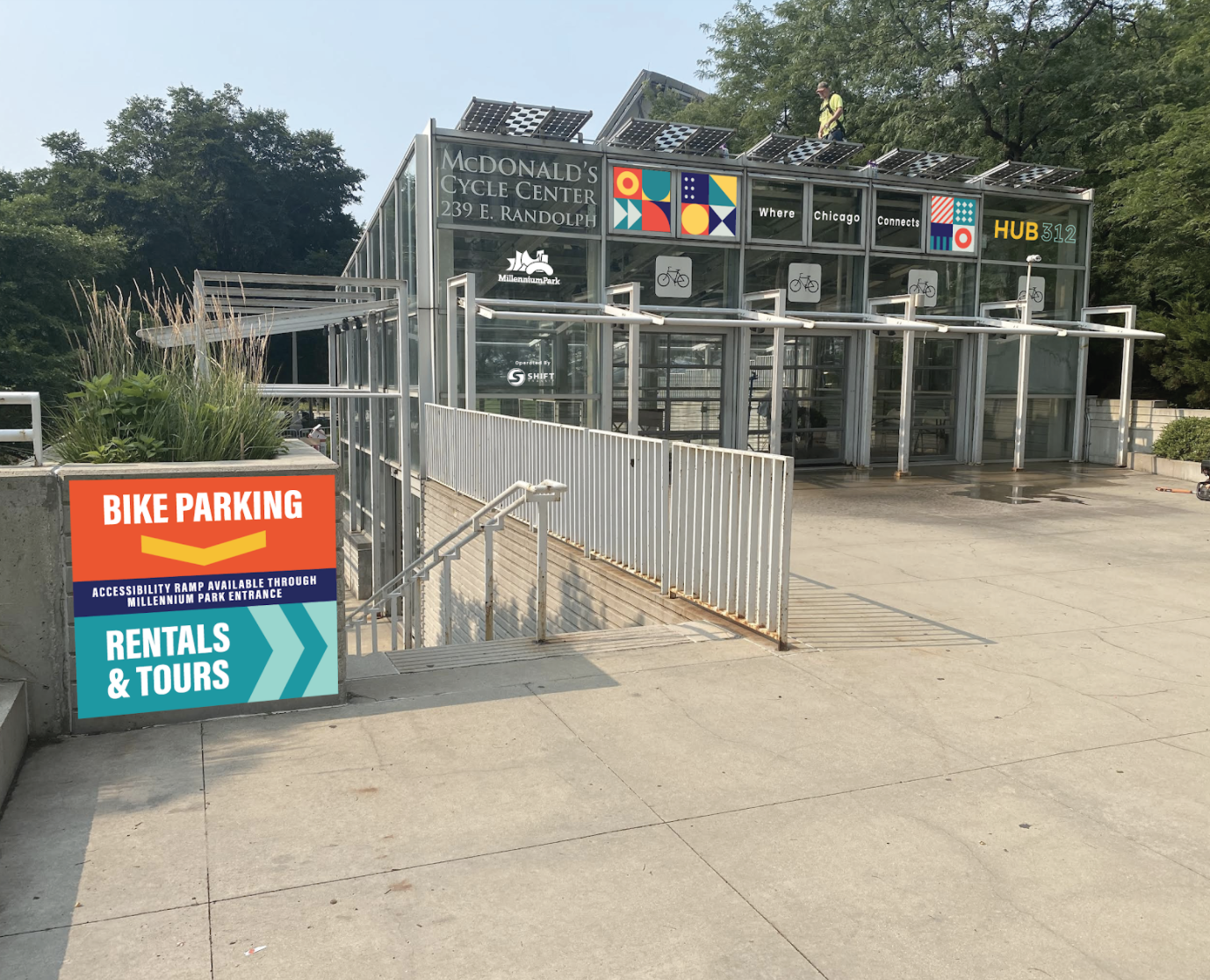The Millennium Park bike station, previously named after its original corporate sponsor, McDonald's, officially reopened as Hub312 Cycling Center earlier this month with an open house, free on-site bike checks, free tours around the park and even free Chicago-style hot dogs.
The bike station, which is located at 239 E. Randolph St., has been around since 2004, offering indoor bike parking, locker rooms, repair services, and bike rentals. Bike and Roll Chicago bike tour company operated the facility for most of its existence. Shift Transit, a Chicago-based mobility operations company founded by Eddy Inlow, who served as the first general manager for the Divvy bike-share program, took over operations in late spring.
Shift renovated the locker rooms, introduced towel service and set up membership packages. That includes discounted “equity memberships” for residents who get food benefits from the state. Shift representatives said mobility justice is important to the company, and that the center would serve all Loop workers, not just office employees.
The contract
In November 2019, the city held a request for proposals process for the next bike station operator. Shift’s bid “earned the highest overall rating.”
Shift's contract to operate the bike station took effect when the City Council approved the deal on May 26 of this year, and it will last for three years, with the option for a two-year renewal. The commissioner of the Chicago Department of Cultural Affairs and Special Events, which oversees Millennium Park, has the right to terminate the agreement “without cause, for any reason,” so long as they give Shift a 30-day notice.
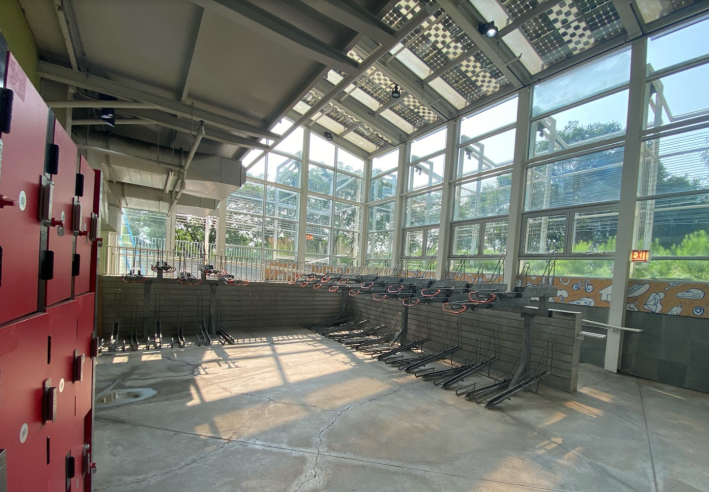
The company will pay an $60,000 annual fee to use the facility, plus 3 percent of the annual gross revenue for the first year, 5 percent of the annual gross revenue for the second year and 7 percent for the third year. If the city chooses to extend the contract, it will have to pay the same fee and 7 percent of the revenue per year. The contract also requires Shift to pay prevailing wage to contractors handing “construction, repair, and maintenance of improvements.”
The hours for the bike station are 6 a.m. to 7 p.m. from March 1 to October 31, and 7:00 a.m. to 6:00 p.m. the rest of the year.
Inlow, who was on hand during the grand opening, said that, even with the ongoing COVID-19 pandemic and many people still working from home, there's still demand for indoor bike parking downtown.
“Customers took 3 million trips in 2020, and we’re looking to grow it in 2021,” he said. “We’re just thrilled to be here.”
Bike station amenities
According to Phil LeDonne, the bike station's general manager, the facility includes 244 indoor bike parking spaces and 100 outdoor spaces, with 92 lockers in the lower level. The men’s shower has 112 lockers, while the women’s locker room has 128 lockers, but the bathroom/shower areas themselves are virtually identical.
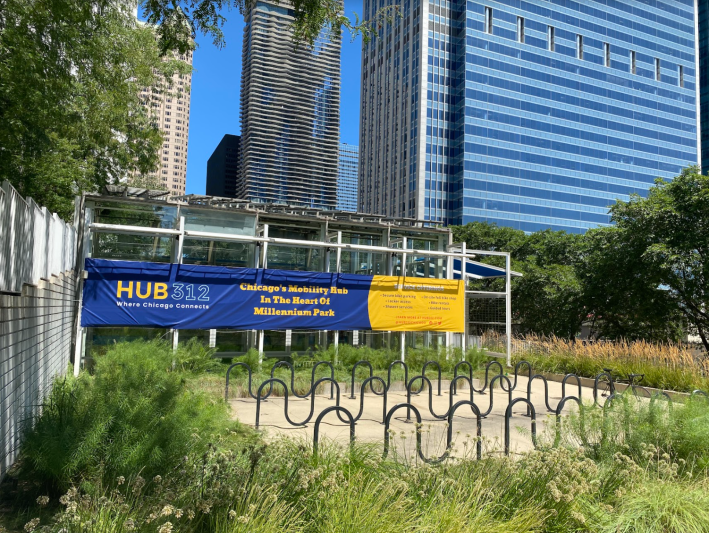
The bike station still has a bike shop on the lower level that offers safety checks for $40, “basic” and “full service” tune-ups for $50-$75, and more advanced repairs for $100-$200. “The pricing is very competitive with other [bike shops] in the area, so we hope it will be popular,” LeDonne said.
Hub312 is offering $50 monthly members and $250 annual memberships, as well as $15 day passes. The pass lets users park their bikes and use the showers and lockers. Cyclists who simply want to use a shower can access it for $5, with towel service costing an extra $2.
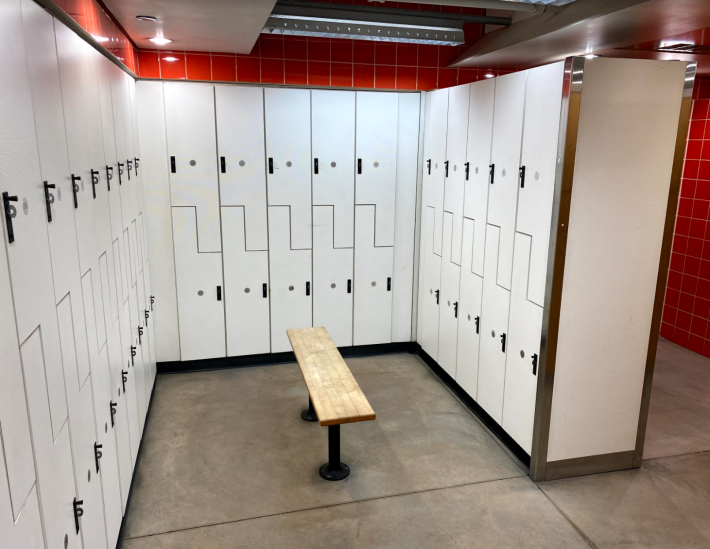
The memberships allow cyclists to use the bike shop for free and access the facility outside the regular business hours using key fobs. The annual pass includes free towel service, lockers reserved exclusively for them and five free day passes they can share with others.
Hub312 also offers $5 monthly “equity passes” to residents who get Supplemental Nutrition Assistance Program (SNAP) program assistance (colloquially known as food stamps). They simply have to present their Link Cards to verify their status. “We’re very excited about the equity pass,” LeDonne said. “We hope to service all members of the community, regardless of income.”
There is no equity annual pass. 12 monthly equity passes add up to $60, which significantly less than $250, but $250 is an equivalent of five regularly priced monthly passes – and 12 monthly passes don’t get its users the annual perks.
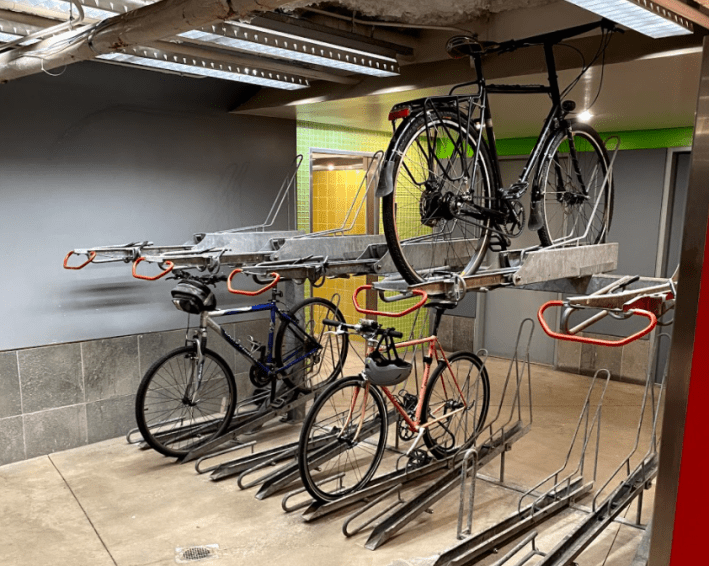
Inlow said that equity is an important priority for his company, saying that around 25 percent of members of the bike-share systems it operates in Detroit and Tucson take advantage of discounted memberships. “It’s something we want to do here,” he said. “We want to get the word out, and we can’t wait to see members use this option.”
Shift spokesperson Cynthia McCafferty said they have been promoting the bike station the Loop and the surrounding neighborhoods, going as far south as Bronzeville, and reaching out to aldermen and area colleges.
Offerings for tourists
Inlow said that while serving Chicagoans is a major priority, so is “help[ing] visitors see Chicago.” Hub312 is offering bike rentals, and it plans to organize bike and walking tours. “We’re really proud to be able to give customers safe and affordable way to get around town during the challenging pandemic,” he said.
The bike rentals were a point of contention when the City Council considered Shift’s contract. The contract with the city sets the rates at $20 an hour, which Chicago Sun-Times reported some aldermen felt was a bit too much. Anne Davis, contract administrator for DCASE, said the $20-an-hour fee is aimed at tourists who are less inclined to choose Divvy.
During the grand opening, Scott Anselmo, Hub312’s head of tours and rentals, gave a walking tour of Millennium Park – because, ironically, the park doesn’t allow biking. He said that he was still working out the details of the tours, but he said that they will take place within the area between North Avenue and the Museum Campus, and they would use Lakefront Trail and/or protected bike lanes. The idea, Anselmo said, was to create something that cyclists of all levels could take part in. “It’s really about seeing Chicago where it’s comfortable for people. It helps make people comfortable with cycling, understand how to react to traffic and be proactive about bike safety.”
While Anselmo said the prices were to-be-determined the contract sets the maximum rate at $25 an hour. As he sees it, biking and walking are simply a good way to see the city. “When you’re in a car, you’re kind of in a box, you’re concentrating on the road. But when you’re walking or biking, you appreciate what’s around you.”
